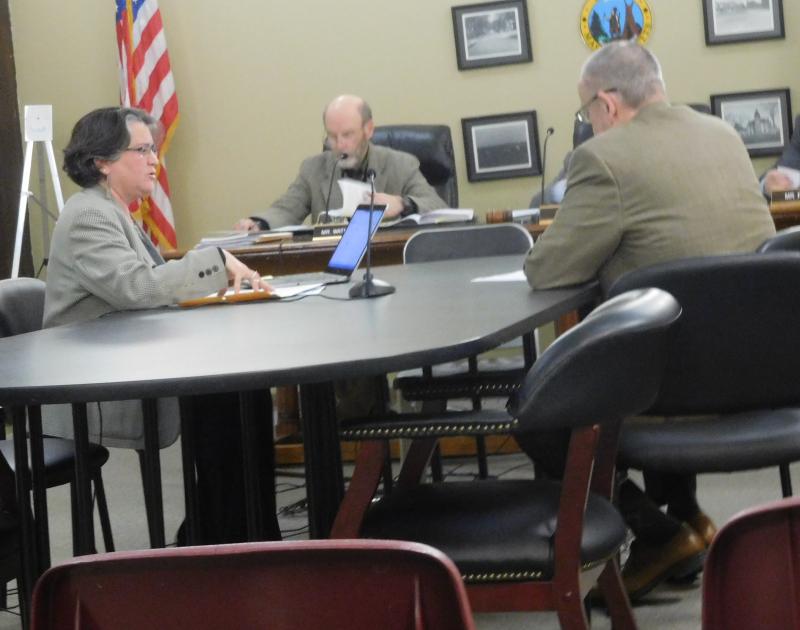Marion Selectmen hear preliminary budget for next year
MARION — Town Administrator Paul Dawson and Finance Director Judy Mooney presented next year’s budget, which will increase by 3.89 percent, but not as much as last year’s 4.18 percent increase.
“I am very pleased with the time and thought that many departments have put in,” Dawson said, to begin budget discussions at the Feb. 19 Board of Selectmen meeting.
He noted some overall trends in the budget: the debt was larger than in 2019, and Marion relies heavily on taxpayers, receiving minimal state aid. Budget discussions also touched on debt exclusions that are still in effect for the Sippican School, Police Station and Old Rochester Regional, and on the tendency to lean on surplus revenues from past years. Dawson warned that this fund will not last.
In touching on individual departments, Dawson only noted town departments that have seen budget increases over five percent. The first was the Board of Selectmen, whose budget increased because the Finance Committee would not certain funds to pay for contract negotiations.
The budget for veterans’ benefits also saw a sharp increase, though the actual spending amount will remain about the same. This is because Marion is making an effort to appropriate the funds up front rather than wait until later in the year.
The Department of Public Works will also see a steeper budget increase because it needs to hire an office manager, and because a stormwater management project falls under their purview. In a similar vein, the Planning Board will see a budget increase as it makes Town Planner Gil Hilario’s position full-time instead of part-time.
The Old Rochester Regional budget was 5.05 percent, which sparked a comment by Selectman John Waterman.
“We can’t afford school budgets that are increasing three, four or five percent every year. We need budgets that are coming in at 2.5 percent or less, so it’s not squeezing out other areas,” Waterman said.
More recreational programs like the Marion Natural History Museum and the Recreation Department will also experience increases due to changes in their programming. The museum is looking for an additional $10,000 to fund its programs. The Recreation Department’s budget has increased because it is looking to pay its workers more than minimum wage, and must account for extra event security at games.
The Board approved a motion to send the preliminary budget to the finance committee, though Dawson noted they will likely see it at least once again before it appears at Town Meeting.














